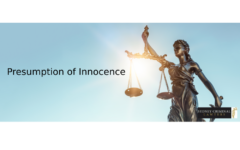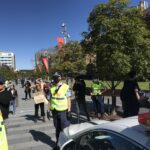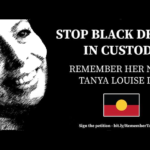Harsh Bail Laws Undermine the Presumption of Innocence, Says NSW Chief Justice

The Chief Justice of New South Wales, Andrew Bell, issued a public statement on 27 May 2025 expressing concerns about the subversion of the presumption of innocence brought about by harsh bail laws in NSW, which has seen a 20% increase in people being held on remand in our state – people who have not been found guilty of any crime.
Public Statement
His Honour says the statement “is designed to facilitate public understanding of the operation of bail laws in New South Wales”, which are “regularly the subject of media coverage”.
The Judge proceeds to make clear that:
“Our criminal justice system takes as its starting point the fundamental proposition that an accused person is innocent until proven guilty and, generally speaking, should not be deprived of his or her liberty unless and until found guilty by a judge or a jury. This common law presumption of innocence is a fundamental plank in our system of justice…”
His Honour then notes that:
“As of 30 March 2025, there were 5732 people in New South Wales charged with serious offences being held in prison on remand and awaiting trial because they had been refused bail. This figure has increased from 5452 as of 30 March 2024 and from 4778 five years earlier, that is to say, an increase of approximately 20% over the past five years.
If an accused person held on remand is later found to be not guilty of the offence(s) charged, or if the charges are withdrawn, that person will have been deprived of liberty for what will very often be a considerable period of time”.
It is an important observation, and one that the mainstream media ignores in favour of sensationalism and often misleading reporting of isolated examples of people released on bail who commit further offences—the exception rather than the norm.
Such reporting fuels calls for harsher bail laws – laws which see thousands of people who later have their criminal charges withdrawn for lack of evidence or who are found not guilty having to spend many months or, in some cases, years behind bars.
Guilty until proven innocent
The presumption of innocence is a fundamental principle in any healthy democracy, which aims to ensure that those who are suspected of offences are not deprived of their liberty until and unless they are adjudicated to be guilty in a court of law.
But sadly, the principle has been subverted in recent years, often after sensationalist reporting by mainstream media sources, which continue to call for people to be put behind bars before any determination of guilt has been made.
Perhaps just as sadly, the Australian Constitution does not enshrine the presumption in law; a situation which enables federal and state parliaments to pass laws which subvert to principle in a way that individuals are put in a position where they have to displace presumptions against bail in order to secure their freedom.
In fact, this is not the first time a Chief Justice of New South Wales has spoken out about the systematic removal of fundamental human rights, including the presumption of innocence. In 2021, then Chief Justice Tom Bathurst called upon lawyers to fight to protect basic rights which were being gradually taken away by successive state and federal parliaments.
The importance of protecting against the further erosion of the presumption of innocence includes:
- Avoiding unnecessary punishment for an innocent individual,
- Avoiding punishments for criminal offences that severely restrict individuals’ freedoms, especially in societies that value freedom,
- Balancing the inequality between the state and the individual with the presumption of innocence, and
- Retaining public confidence in the criminal justice system by reducing the conviction rates of innocent people.
In Australia and New South Wales specifically, the history and evolution of ‘presumption of innocence’ and bail laws have significantly affected how individuals are tried in the courts. Before 2014, NSW bail laws were determined by the Bail Act 1978 — a bill that allowed for the presumption of bail for armed and violent robbery offences, making it necessary for future strict bail conditions to be set by amendments to the act.
To simplify the framework, the government created the Bail Act 2013, which created the unacceptable risk test—a harsh set of conditions that completely replaced the presumption process.
Sections 17 and 18 of the Bail Act details ‘unacceptable risks’ of the possible parolees that could revoke their chance of bail, including:
- The defendant could fail to appear in court,
- The defendant will commit a serious offence while on bail,
- The defendant is a danger to the safety of individuals, victims, or the community,
- The defendant will interfere with evidence or witnesses, and
- Other factors include the defendant’s background, the prosecution’s case, the nature of the offence, and any history of not complying with bail conditions in the past.
Furthermore, the Bail Amendment Act 2014 further tightened bail restrictions by introducing the ‘show cause’ provisions. Section 16B of the Act lists offences where bail is outrightly refused, requiring the defendant to ‘show cause’ as to why they should be granted bail if charged with one of these serious offences.
Cost to taxpayer
Along with removing human rights and chances of a fair and speedy trial in the court system, refusing bail altogether also leads to an exorbitant cost to taxpayers who are forced to pay for the overcrowded prison system in Australia. For example, in the Northern Territory alone, the imprisonment rate is 838.3 for every 100,000 people, with 96% of incarcerated kids being Indigenous — highlighting the glaring racism issue in the criminal justice system.
Not only have there been numerous instances of police misconduct in New South Wales that have led to taxpayers footing the bill for the police’s mistakes, but the NSW government is hellbent on incarcerating youth instead of creating diversion plans and preventative strategies to keep them out of the criminal justice system in the first place.
The focus on higher arrest numbers and keeping youths incarcerated has led to a 12-month temporary restriction on youth bail law, resulting in over 80% of youths in prison being on remand — a staggering number that requires more than $2 million extra, with a targeted $13.4 million needed to fund this agenda.
Arresting children, and keeping them locked up, creates the cycle of being too young in the justice system, which dramatically increases the risk of re-offending — not to mention, ‘the NSW government is costing taxpayers millions with its failed bail laws’, according to the Aboriginal Legal Service. Spending money on child prisons in New South Wales has increased to $1 million per year — for just one child, which asks the dire question of why taxpayer money is being put towards incarcerating youths instead of diversion programs and community-based approaches that can avoid this issue in the first place.
Aboriginal youths
The Aboriginal Legal Service Limited (ALS) released a report one year after the introduction of new bail laws that showed ‘children represented by ALS are being locked up for crimes that would never attract a jail sentence if convicted’. This organisation also notes how the laws will have a hugely detrimental effect on NSW communities, with the harsher bail laws NOT resulting in less crime- but only resulting in more children in jail.
The report highlighted the following:
- The younger a child has a run-in with the justice system, the more likely they are to offend as an adult,
- Children are not able to access diversion programs,
- Children are being jailed for crimes that do not justify a jail sentence,
- Harsher Bail laws do not reduce negative behaviour,
- Time in custody increases the risk of re-offending,
- Imprisonment leads to a negative cycle for Aboriginal children, and
- Community and youth interests both benefit from needs-based services.
Bail and Remand are Weaponised
The final concern with harsher bail conditions in NSW is that police and magistrates weaponise their power to combat ‘offenders’ who may be unfairly punished. For example, police weaponised the legal system to disable climate activism, using harsh bail conditions to control the public and silence those who may speak out against issues, such as protests in the 2019 Extinction Rebellion spring actions and the 29 June Blockade Australia event.
Not only is unfairly using harsh bail conditions immoral, but it is also illegal. The Bail Act states that bail conditions and remand should only be used in circumstances in which bail concerns arise, such as when the accused could commit a serious crime, pose a danger to others, or tamper with witnesses or evidence.
As bail conditions tighten in New South Wales, the state and country as a whole need to consider whether the stricter regulations are helping or harming the community.






